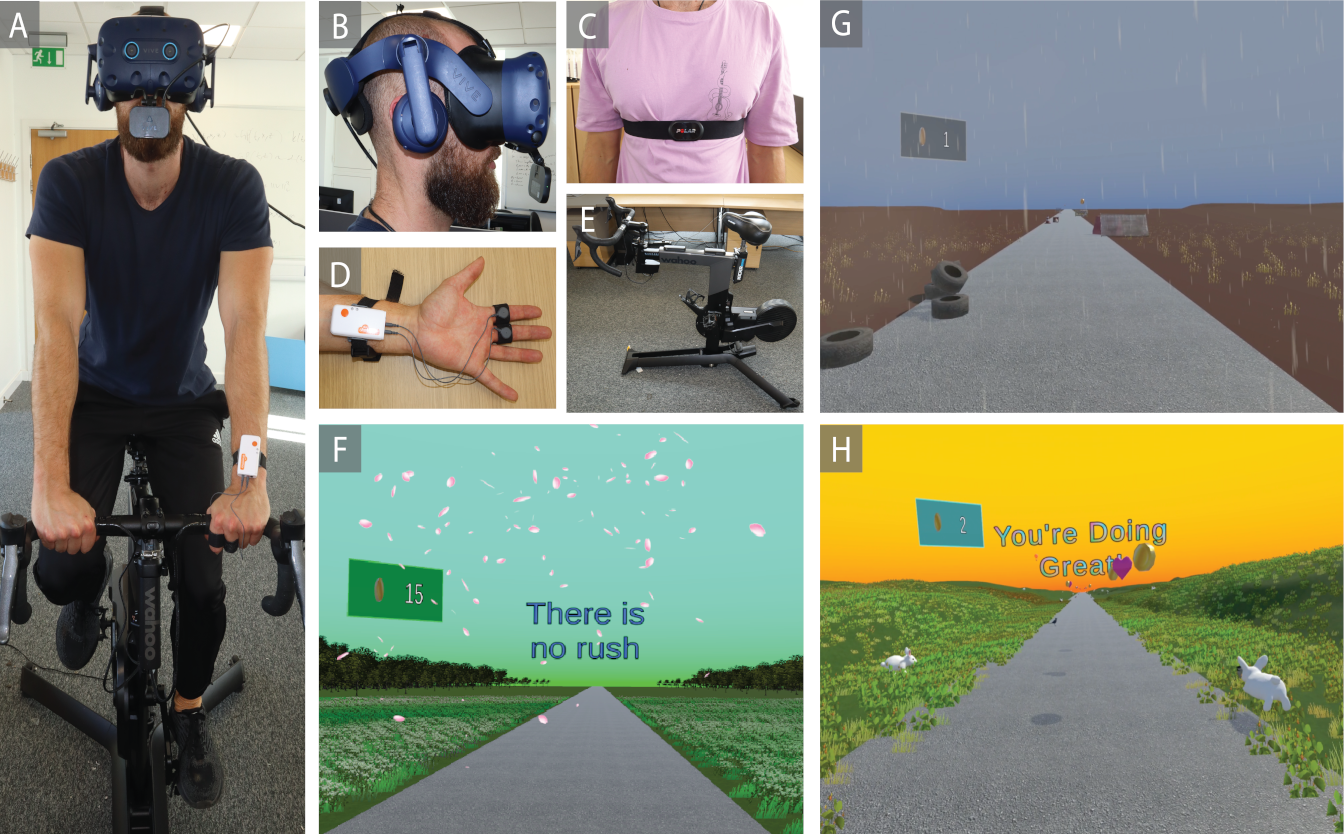Sweating the Details
Emotion Recognition and the Influence of Physical Exertion in Virtual Reality Exergaming

There is great potential for adapting Virtual Reality (VR) exergames based on a user's affective state. However, physical activity and VR interfere with physiological sensors, making affect recognition challenging. We conducted a study (n=72) in which users experienced four emotion inducing VR exergaming environments (happiness, sadness, stress and calmness) at three different levels of exertion (low, medium, high). We collected physiological measures through pupillometry, electrodermal activity, heart rate, and facial tracking, as well as subjective affect ratings. Our validated virtual environments, data, and analyses are openly available. We found that the level of exertion influences the way affect can be recognised, as well as affect itself. Furthermore, our results highlight the importance of data cleaning to account for environmental and interpersonal factors interfering with physiological measures. The results shed light on the relationships between physiological measures and affective states and inform design choices about sensors and data cleaning approaches for affective VR.
CHI'24 Full Paper (🏅 Best Paper Honorable Mention)
- Citation: Dominic Potts, Zoe Broad, Tarini Sehgal, Joseph Hartley, Eamonn O’Neill, Crescent Jicol, Christopher Clarke, and Christof Lutteroth. 2024. Sweating the Details: Emotion Recognition and the Influence of Physical Exertion in Virtual Reality Exergaming. In Proceedings of the CHI Conference on Human Factors in Computing Systems (CHI ’24), May 11–16, 2024, Honolulu, HI, USA. ACM, New York, NY, USA, 21 pages. https://doi.org/10.1145/3613904.3642611 View Paper VEs & EmoSense SDK Paper Artifacts Dataset (n=72)